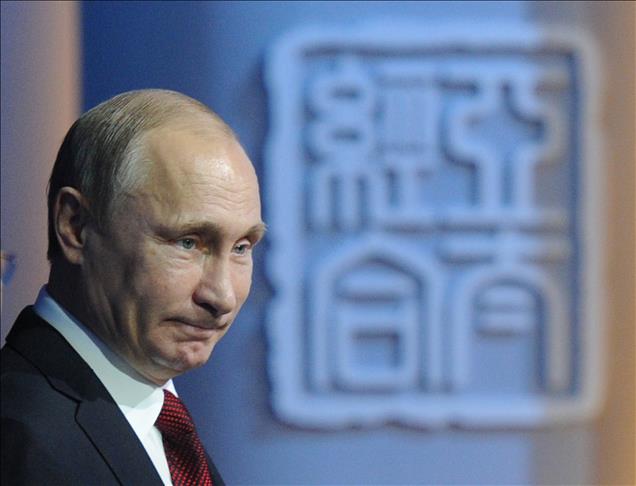Russia turns to Asian energy markets
Due to western sanctions, Russia looks east to enter Asian energy market through gas deal with China

By Huseyin Erdogan
ANKARA
Cooperation deals between Russia and China from May onwards and including those made at the Asia-Pacific Economic Cooperation Summit last week signal their flourishing relations, according to energy industry experts.
"Relations between Russia and China are growing stronger," said Sijbren de Jong, an energy analyst at the Hague Centre for Strategic Studies.
"However there are many sticky points remaining in negotiations between China and Russia on the gas deals, chief among them is the price," de Jong added.
Russian President Vladimir Putin and his counterpart Chinese President Xi Jinping inked several cooperation agreements including a memorandum of understanding on a western gas route following the Asia-Pacific Economic Cooperation Summit in Beijing on Sunday.
In May, China and Russia agreed on a 30-year, $400 billion deal to supply China with natural gas from fields in Eastern Siberia. In addition to this, Russia’s top gas producer, Gazprom, and China's National Petroleum Corporation, one of China’s largest oil and gas companies, signed an agreement to supply 30 billion cubic meters of gas over the next 30 years during the APEC summit in Beijing.
"In the deal signed last May, Russia made important concessions to China on the price, which according to those close to the negotiations lies closer to $350 per 1000 cubic meters of gas, than the usual $380-400 paid in Europe," de Jong underlined.
According to the deal, the Altai pipeline project will transport gas from Russia to China’s western region.
"However, China will drive an even harder bargain on this pipeline, as it will enter China’s sparsely populated Western region," de Jong said.
"China itself has to build the entire pipeline infrastructure to transport the gas to its population centers on the Eastern coast. Since this will be very expensive, it should be expected that Russia, or Gazprom, will have to make a significant knee fall on the price," he said.
Suffering from sanctions in the West, Russia is looking east to the Asian energy markets for natural gas sales. Energy trade to Asia Pacific is a priority of Russian energy strategy.
"Gazprom are under tremendous pressure in Europe, and desperately need to diversify their client base. China knows this and drives a hard bargain which means Russia is even willing to accept unfavorable gas deals, so long as they can show to the outside world that ‘it does not need Europe’. The opposite is true however," de Jong said.
"Because of the Ukraine crises, Russia's political relations deteriorated between western countries," said Gurkan Kumbaroglu, the elected president of the Ohio-based International Association for Energy Economics.
He added that western sanctions drive Russia towards economic cooperation with China especially in the energy industry.
The Russia-Ukraine crisis that led to a Russia-China alliance showed the importance of diversifying its sources of natural gas, and EU countries began to work on alternative projects to reduce dependence on Russia, according to Kumbaroglu.
Russia supplies the U.K. with 30 percent of its natural gas and it is also currently talking with Japan, South Korea and Taiwan to export LNG.
Anadolu Agency website contains only a portion of the news stories offered to subscribers in the AA News Broadcasting System (HAS), and in summarized form. Please contact us for subscription options.

